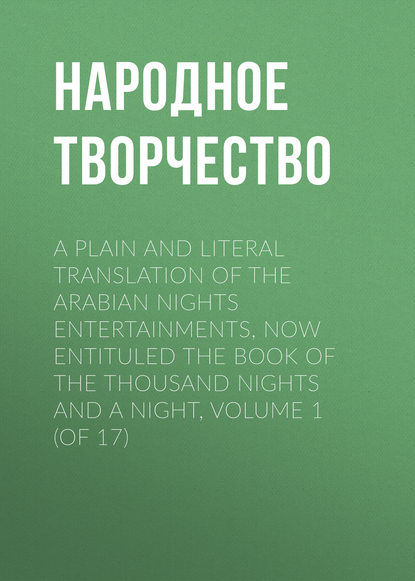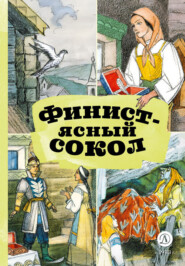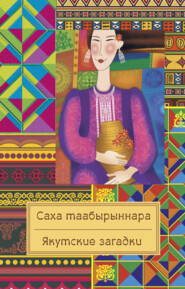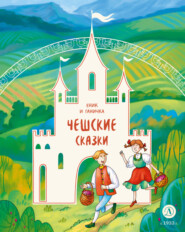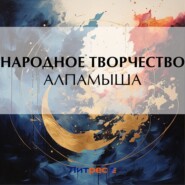По всем вопросам обращайтесь на: info@litportal.ru
(©) 2003-2024.
✖
A plain and literal translation of the Arabian nights entertainments, now entituled The Book of the Thousand Nights and a Night, Volume 1 (of 17)
Настройки чтения
Размер шрифта
Высота строк
Поля
652
The blind in Egypt are notorious for insolence and violence, fanaticism and rapacity. Not a few foreigners have suffered from them (Pilgrimage i. 148). In former times many were blinded in infancy by their mothers, and others blinded themselves to escape conscription or honest hard work. They could always obtain food, especially as Mu'ezzins; and were preferred because they could not take advantage of the minaret by spying into their neighbours' households. The Egyptian race is chronically weak-eyed, the effect of the damp hot climate of the valley, where ophthalmia prevailed even during the pre-Pharaohnic days. The great Sesostris died stone-blind and his successor lost his sight for ten years (Pilgrimage ii., 176). That the Fellahs are now congenitally weak-eyed, may by seen by comparing them with negroes imported from Central Africa. Ophthalmia rages, especially during the damp season, in the lower Nile-valley; and the best cure for it is a fortnight's trip to the Desert where, despite glare, sand and wind, the eye readily recovers tone.
653
i. e. With kicks and cuffs, and blows, as is the custom. (Pilgrimage i., 174.)
654
Arab. Káid (whence "Alcayde") a word still much used in North Western Africa.
655
Arab. "Sullam"=lit. a ladder; a frame-work of sticks, used by way of our triangles or whipping-posts.
656
This is one of the feats of Al-Simiyá=white magic; fascinating the eyes. In Europe it has lately taken the name of "Electro-biology."
657
Again by means of the "Simiyá" or power of fascination possessed by the old scoundrel.
658
A formula for averting "Al-Ayn," the evil eye. It is always unlucky to meet a one-eyed man, especially the first thing in the morning and when setting out on any errand. The idea is that the fascinated one will suffer from some action of the physical eye. Monoculars also are held to be rogues: so the Sanskrit saying "Few one-eyed men be honest men."
659
Al-Nashshár from Nashr=sawing: so the fiddler in Italian is called the "village-saw" (Sega del villaggio). He is the Alnaschar of the Englished Galland and Richardson. The tale is very old. It appears as the Brahman and the Pot of Rice in the Panchatantra; and Professor Benfey believes (as usual with him) that this, with many others, derives from a Buddhist source. But I would distinctly derive it from Æsop's market-woman who kicked over her eggs; whence the Lat. prov. Ante victoriam canere triumphum=to sell the skin before you have caught the bear. In the "Kalilah and Dimnah" and its numerous offspring it is the "Ascetic with his Jar of oil and honey;" in Rabelais (i, 33) Echephron's shoemaker spills his milk, and so La Perette in La Fontaine. See M. Max Muller's "Chips," vol. iii., appendix. The curious reader will compare my version with that which appears at the end of Richardson's Arabic Grammar (Edit. of 1811): he had a better, or rather a fuller MS. (p. 199) than any yet printed.
660
Arab. "Atr"=any perfume especially oil of roses; whence our word "Ottar," through the Turkish corruption.
661
The texts give "dirhams" (100,000=5,000 dinars) for "dinars," a clerical error as the sequel shows.
662
"Young slaves," says Richardson, losing "colour."
663
Nothing more calculated to give affront than such a refusal. Richardson (p. 204) who, however, doubts his own version (p. 208) here translates, "and I will not give liberty to my soul (spouse) but in her apartments." The Arabic or rather Cairene, is, "wa lá akhalli rúhi"=I will not let myself go i. e. be my every-day self, etc.
664
"Whilst she is in astonishment and terror." (Richardson).
665
"Chamber of robes," Richardson whose text has "Nám" for "Manám."
666
"Till I compleat her distress," Richardson, whose text is corrupt.
667
"Sleep by her side," R. the word "Náma" bearing both senses.
668
"Will take my hand," R. "takabbal" being also ambiguous.
669
Arab. "Mu'arras" one who brings about "'Ars," marriages, etc. So the Germ. "Kupplerinn," a Coupleress. It is one of the many synonyms for a pimp, and a word in general use (Pilgrimage i., 276). The most insulting term, like Dayyús, insinuates that the man panders for his own wife.
670
Of hands and face, etc. See Night cccclxiv.
671
Arab. "Sadakah" (sincerity), voluntary or superogatory alms, opposed to "Zakát" (purification), legal alms which are indispensable. "Prayer carries us half way to Allah; fasting brings us to the door of His palace and alms-deeds (Sadakah) causes us to enter." For "Zakát" no especial rate is fixed; but it should not be less than one-fortieth of property or two and a half per cent. Thus Al-Islam is, as far as I know, the only faith which makes a poor-rate (Zakát) obligatory and which has invented a property-tax, as opposed to the unjust and unfair income-tax upon which England prides herself.
672
A Greek girl.
673
This was making himself very easy; and the idea is that the gold in pouch caused him to be so bold. Lane's explanation (in loco) is all wrong. The pride engendered by sudden possession of money is a lieu commun amongst Eastern story-tellers; even in the beast-fables the mouse which has stolen a few gold pieces becomes confident and stouthearted.
674
Arab. "Al-Málihah" also means the beautiful (fem.), from "Milh"=salt, splendour, etc. The Mac. Edit. has "Mumallihah"=a salt-vessel.
675
i. e. to see if he felt the smart.
676
Arab. "Sardábeh" (Persian)=an underground room used for coolness in the hot season. It is unknown in Cairo but every house in Baghdad, in fact throughout the Mesopotamian cities, has one. It is on the principle of the underground cellar without which wine will not keep: Lane (i., 406) calls it a "vault."





